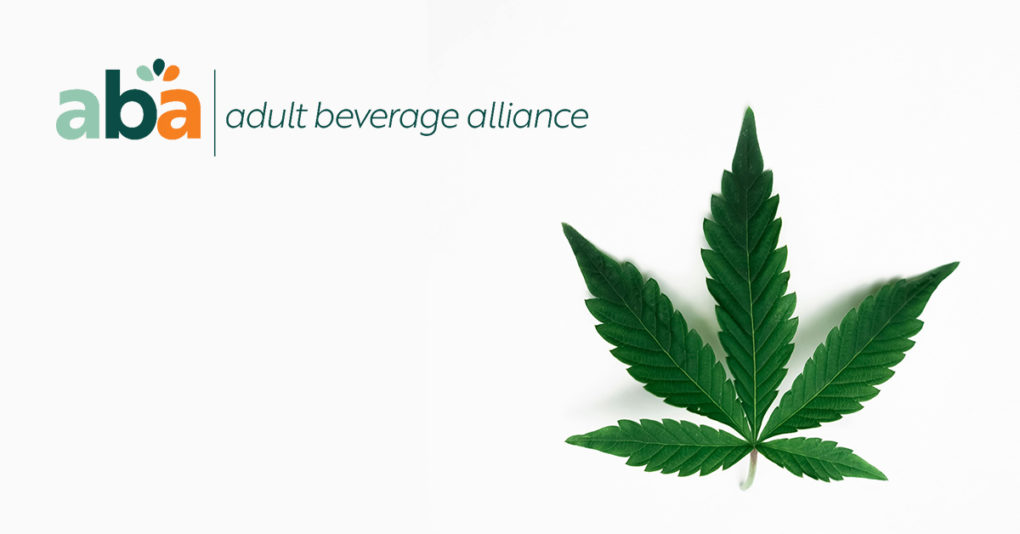As hemp-derived delta-9 beverages shake up the market, state legislatures are scrambling to regulate the sudden influx of THC-infused products. In Massachusetts and Rhode Island, a new industry group – the Adult Beverage Association (ABA) – has formed to help guide the law.
The ABA is a non-profit organization aiming to work with lawmakers in the two New England states to institute fair regulations that will prioritize consumer safety while preserving the ability for brands and retailers to continue selling hemp-derived THC drinks in a manner comparable to alcohol sales.
The group was founded by the heads of regional distributors Craft Collective and Atlantic Beverage Distributors, both of which began carrying delta-9 THC drinks around six months ago and have seen the category boom as consumers seek out more non-alcoholic beverage options. The ABA’s membership also includes a number of hemp THC brands operating in Mass and Rhode Island, including BLNCD, Cann, Cantrip, Cheech & Chong, Foundry Nation, Good Feels, Mary Jones, Nantucket LongBird, North and Wynk, among others.
ABA president and Craft Collective founder Adam Oliveri said the group is for now primarily focused on Massachusetts as lawmakers recently introduced a bill to regulate the category. Oliveri, speaking to BevNET along with Craft Collective CEO Bryan Ferguson and Atlantic Beverage general sales manager Mino Soghomonian, said that Rhode Island is currently further along in instituting regulations, but in Massachusetts the market has been almost entirely self-regulated with distributors making conscious efforts to ensure THC products are only sold to reputable retailers who will enforce age restrictions.
“There’s some legislation pending in Massachusetts that would clarify a lot of things for hemp products, but we feel that particular legislation needs some additional structure,” Oliveri said. “Our goal is to try to align the regulations for hemp products with those of alcoholic beverages.”
Ferguson said the bill working its way through the Massachusetts state legislature is a “work in progress,” and there’s currently no timeline for when lawmakers will advance the law ahead. The ABA is now working to meet with those lawmakers to help guide the bill’s direction.
Among the top priorities, Oliveri said, are ensuring products are properly labeled and tested, that manufacturers and brands are properly licensed and that products containing THC are age-gated to 21+.
“Some of that, for the hemp landscape, doesn’t exist in a robust enough framework to create a market that I think has durability and lasting potential over time,” he said. “And we [Craft Collective] want to be able to invest in it more than we have and I know Atlantic feels the same way.”
The group said the goal for the ABA is to only focus on delta-9 THC products, and is specifically not including synthetic delta-8 products in its purview. Soghomonian called delta-9 a “more credible source” of THC and said the organization will also focus on education efforts.
Earlier this month, some Massachusetts lawmakers posed the question of whether hemp-derived products should be placed under the control of the state’s Cannabis Control Commission, which was created following the 2016 legalization of recreational marijuana in Massachusetts to oversee the legal cannabis market, including the dispensary channel.
Oliveri said the ABA would potentially be amenable to that arrangement, or to have hemp-derived THC drinks made the responsibility of the Massachusetts Alcohol Beverages Control Commission. He said the ABA intends to meet with both agencies to discuss the issue.
The involvement of brands, some of whom have a national presence in numerous markets across the country, is also important for the ABA, Oliveri added. He said the knowledge that beverage manufacturers bring to the table, having navigated regulations around cannabis and hemp products for years, has been valuable to inform the association’s proposed regulatory framework.
Ultimately, Oliveri said, the goal of the group is to achieve “balance” in the market, as demand for the drinks is not slowing down.
“At the end of the day, consumers are interested in it,” he said. “But I think if you look at it, independent of the consumer interest, and ask the question about why retailers are adopting it … they’re struggling, they’re having a challenging time navigating the ups and downs of the alcohol industry.”
